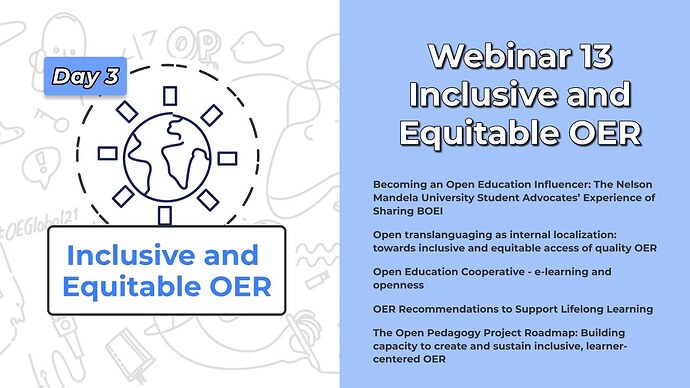Aleksandra Czetwertyńska (Centrum Cyfrowe)
In my presentation, I would like to show an open online course that is to support the creation of open educational resources created as part of the Centrum Cyfrowe (Digitali Center Poland) project: SpołEd (EduCoop).
What I’m going to talk about:
- description of the Open Education Cooperative project
- course description and usage suggestions
- method scaling presentation
- searching for partners for cooperation
- if there will be time we could make together small exercise from the course
For four years Centrum Cyfrowe have been cooperating with teachers and librarians, together we create open educational resources, but also talk about what open education is, what competences it requires, which of them are crucial for the learning process in general. In our project, we are guided by 4 values: cooperation, learning, openness and adventure. And it is the starting point for all our activities.
The course was created as a collection of good practices, tools and methods that we have developed over the years. It also collects materials produced by other organizations, universities and sometimes private individuals. We show and practice the use of tools, but also learning methods. We support canvases and simple checklists. The course also encourages you to create your own learning resource. The course shows the theory and history of Open Educational Resources, but the most important thing about it is practice. Our experience shows that it is difficult to understand the idea of oer unless you make your own resource available. This is what we are striving for.
Last year, we translated the course into English and we tried to select more universal examples and materials so that it could also be used by teachers from other countries.
We are open to cooperation, translations into another language or new versions of the course. We know that this course can be modified according to the needs, because we did so in creating a separate version for librarians. We believe that such a formula not only enables easy translation, but also adaptation to the needs of various groups that may be interested in open education, not only teachers, but also parents, employees of cultural centers and institutions.
Therefore, I would like there to be space during the presentation for active participation, asking questions, adding insights and ideas, and possibly a short sample of the course itself.
Extended abstract: OE_Global_2021_paper_60.pdf 📄
Webinar Information
This presentation is part of Webinar 13 Inclusive and equitable OER taking place in your local time → .
Webinar Access (registered conference participants only):
![]()
![]() Go to Webinar 13
Go to Webinar 13
UNESCO OER Action Area: Inclusive and equitable OER
Language: EnglishSee the other presentations that take place in this webinar.
Presentation Recording
Participate
Before the webinar the authors will be asked to reply below with links to their presentation materials, related videos, and other relevant links, as well as prompts for discussion here.
For anyone that missed the live session, an archive will be posted here as soon as possible.
Conference participants are urged also to reply below with questions, comments for the presenters or to share related resources.
